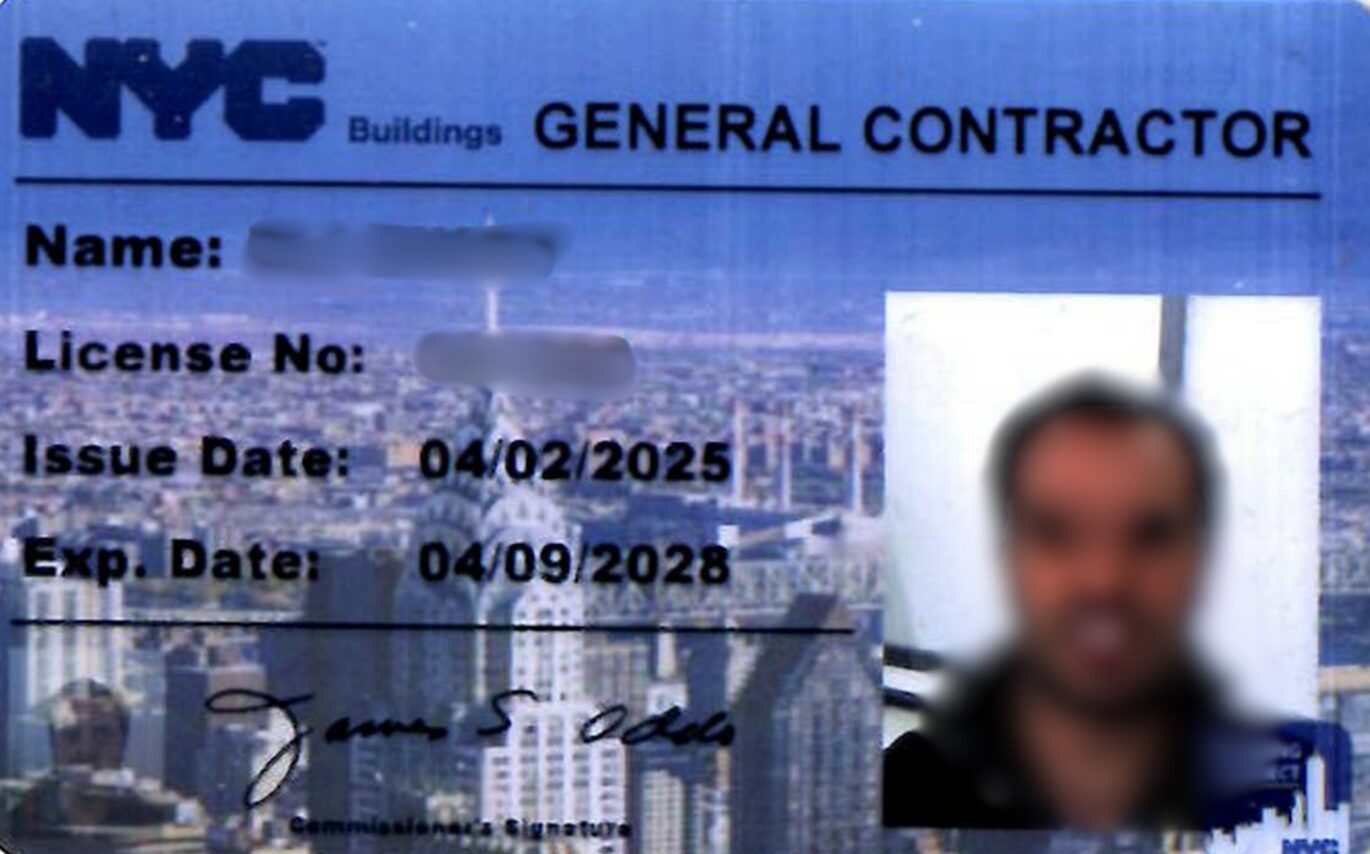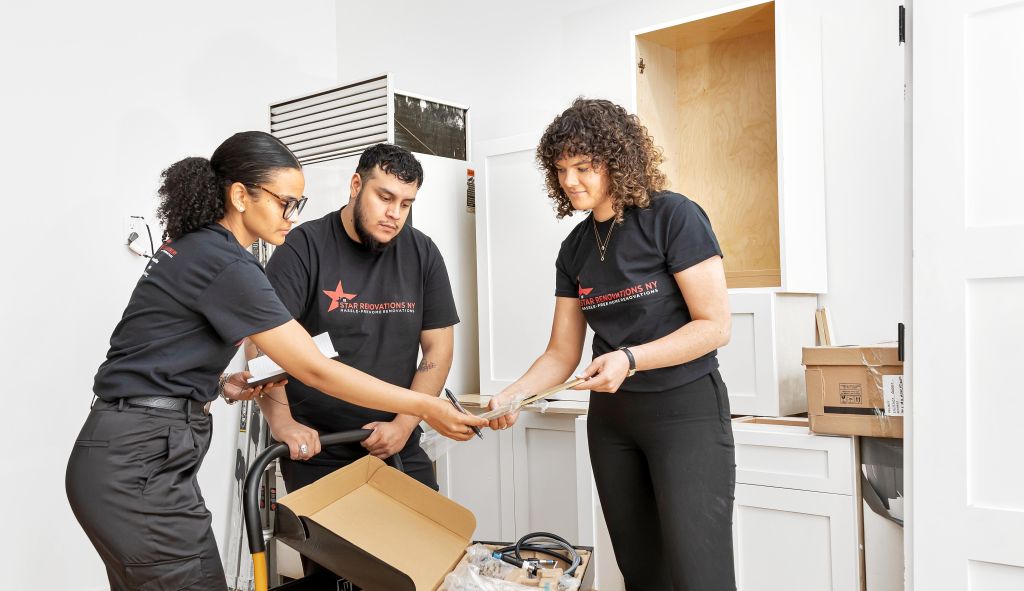How to Vet your NYC Contractor

How to Vet NYC Construction Companies
Many of you guys may be asking the million-dollar question: How to Vet your NYC Contractor? In today’s market of home projects, finding a trusted contractor, designer, or construction company can be among the hardest decisions to make. There are many factors that can help make this decision a bit easier for homeowners, and we want to be sure you have all the tips and tricks to vet the company that will take your space to the next level. From, you can gain insight into what a company has to offer.

But beyond the paperwork and professional accolades, there’s one element that often gets overlooked: the relationship. Working with a construction team is, in many ways, like entering a short-term marriage. You’ll be in regular communication, making big decisions together, managing challenges, and trusting them with the details of your home—your most personal space. That’s why establishing a good connection early on is just as important as checking their credentials. Can you communicate easily? Do they listen to your concerns? Do you feel like your vision is being respected? These are just as crucial as licenses and liability.
Once you feel confident about the personal connection, you can start diving into the practical aspects that protect you and your investment. Here are a few key points to guide your vetting process:
- Licensing
Before any work is considered, one of the most important things to verify is whether the contractor or construction company is properly licensed. In NYC, this isn’t just a formality—it’s a fundamental requirement for ensuring your project is handled legally, safely, and professionally.
A legitimate company should always be able to provide the appropriate licenses for your project type and jurisdiction. Depending on the scope of your renovation, additional specialty licenses may also be required—for electrical work, plumbing, asbestos removal, and more. For general contractors operating in New York City, this typically means holding a Home Improvement Contractor (HIC) license, which is issued by the NYC Department of Consumer and Worker Protection (formerly the Department of Consumer Affairs, or DCA). This license ensures the contractor is legally approved to perform renovation work in residential properties. In addition to DCA licensing, contractors must also be registered with the NYC Department of Buildings (DOB) if they intend to file permits, perform structural work, or oversee any alterations that impact the building envelope or core systems.
Another critical requirement is being bonded. This means the contractor has secured a type of financial guarantee that protects you—the homeowner—if the contractor fails to complete the job or meet certain obligations. Bonding adds an extra layer of accountability and is a key safeguard for consumers.

Why does this matter to you as a homeowner? Because working with a licensed professional gives you more than just legal protection, it gives you peace of mind. Licensed contractors have to meet specific criteria: they must pass background checks, maintain insurance, and often demonstrate a certain level of experience and competency. These requirements act as guardrails to help protect your home, your finances, and your safety.
Additionally, NYC building codes and DOB (Department of Buildings) regulations are some of the most stringent and complex in the country. A licensed contractor is more likely to stay current with the latest code updates, filing procedures, and permit requirements which help to avoid costly delays or violations during your renovation.
Related: Everything You Need To Know About Your NYC Renovation Approval Package
Pro tip: Don’t just take someone’s word for it. You can easily verify a contractor’s license through the NYC DOB or DCWP online portals. Any reputable team, like Star Renovations will gladly provide this information up front and walk you through how we ensure every part of your project is filed and permitted properly!

Quick Steps to Verify Licensing
- Visit the “Check License & Registration Status” page on NYC.gov.
- Enter the contractor’s name or license/registration number.
- Confirm they hold a General Contractor Registration, Home Improvement Contractor license, or other relevant credentials.
- Check that the license is active and see if there are any past disciplinary actions.
This tool ensures you’re working with a contractor who is properly registered with the DOB—an essential foundation for legal, safe, and code-compliant renovations in NYC.
- Insurance Coverage
Never hesitate to ask about insurance. A reputable contractor will have general liability and workers’ compensation coverage—and they’ll be happy to show proof. But that’s just the foundation. In NYC, many buildings require contractors to also carry commercial auto insurance for any vehicles used on-site, and umbrella (or excess) coverage, often up to $5 million, to meet higher liability thresholds common in co-ops and condos. These added layers of protection safeguard not only the contractor’s team, but also your property, your neighbors, and your peace of mind throughout the project.
In NYC, insurance isn’t just a “nice-to-have” but is a requirement for contractors. A reputable team, like Star Renovations, ensures all necessary coverage is in place to meet the standards of NYC co-ops, Department of Buildings (DOB) regulations, and other approval bodies. This not only keeps us in compliance, but more importantly, it gives our clients peace of mind knowing their project is set up for a smooth submission process with minimal pushback.
“In the busy and crowded environment of New York City, having general liability insurance (GL) is not optional” – Farmer Brown Insurance. It’s often required not only to obtain a contractor’s license, but also to secure commercial leases, meet building approval standards, and satisfy client or lender requirements. Think of it as a foundational layer of protection that benefits everyone involved in the renovation process.
This type of coverage protects you, the homeowner, from having to pay out-of-pocket if something goes wrong. For example, if a subcontractor accidentally damages your hardwood floors while moving materials, or if a delivery person trips over construction tools in your hallway, general liability insurance would cover the cost of those damages or injuries.

If your contractor hires employees, they’re required by New York law to carry workers’ comp insurance. This ensures coverage for medical bills and lost income in case of job-related injuries, safeguarding both you and their team.
In a city like New York, where contractors regularly transport tools, equipment, and materials, commercial auto insurance is not just recommended, it’s required by law and by many co-op/condo boards.
What it covers
This coverage protects your project, and your contractor from potential losses arising from the use of vehicles for business purposes. That includes delivery trucks, contractor vans, and any company-owned or leased vehicles used on the job. Coverage typically includes:
- Liability for bodily injury and property damage caused to others in accidents involving business vehicles
- Physical damage to the vehicle itself, through comprehensive and collision coverage
While not always mandated, some standard requirements in NYC Co-Ops or Condo’s for teams operating at a professional level require umbrella coverage.
This type of policy extends the limits of a contractor’s standard liability coverage, providing added financial protection in the event of a major incident. In a city where buildings share walls, utilities, and common areas, the stakes can be high. Most co-op and condo boards will require contractors to carry at least $5,000,000 in umbrella coverage to meet their liability thresholds. This is especially common in high-rise or historic buildings where damage or disruption could have wide-reaching impacts.
Umbrella insurance gives everyone peace of mind: the building is protected, the homeowner is protected, and the contractor is demonstrating a serious, proactive approach to risk management.
By verifying these insurance credentials, you’re not only following best practices—you’re protecting your home, your family, and your project’s timeline. Always ask your contractor to provide a certificate of insurance (COI) naming you as an additional insured. It’s simple, but it demonstrates they’re serious about responsibility and compliance.
- Local Reviews
In a city as fast-paced and competitive as New York, a construction company’s reputation is often built on the experiences of its past clients. Online platforms like Google and Houzz make it easier than ever to access those experiences and get an unfiltered look into how a team truly performs.

When browsing through reviews, take the time to go beyond the star rating. Read what clients are actually saying—were they satisfied with communication throughout the process? Did the team stay on budget and timeline? Was the workmanship up to par, and how did the company handle unexpected issues? These firsthand accounts can offer valuable insight into what it’s really like to work with a team.
Look for consistency in the feedback. A handful of glowing reviews can be great, but if multiple clients are highlighting the same strengths—like reliability, transparency, or quality craftsmanship—it’s a good indicator that those values are baked into the company’s culture. On the other hand, if similar concerns pop up repeatedly, that’s worth taking into account.
- Portfolio of Work
.jpeg)
Star Renovations | Stunning Full Gut Renovation at Henderson House
While reviews tell you how past clients felt about working with a contractor, a portfolio shows you what they actually delivered. A well-curated portfolio gives you a clear sense of a team’s capabilities, style, and attention to detail. In NYC, where every home comes with its own unique quirks and challenges, it’s especially important to see how a construction company adapts to different types of spaces.
Start by asking to view completed projects that are similar in scope or style to yours. Are you renovating an estate apartment? Updating a brownstone kitchen? Refreshing a compact bathroom? Look for examples that align with your goals. The more relevant their experience, the smoother your project is likely to go.
Pay close attention to the quality of finishes, the way materials are integrated, and how thoughtfully the space is laid out. Does the work feel custom and intentional? Or is it overly templated and repetitive? A diverse and polished portfolio speaks to a company’s ability to collaborate with clients, solve design challenges, and execute with precision.
Many companies—including ours at Star Renovations NY—regularly update their portfolios on websites, social media, and platforms like Houzz. It’s a great idea to ask questions about specific projects you like: What was the timeline? Were there unexpected challenges? How did the team collaborate with the client? These insights can give you a deeper understanding of how your own renovation might unfold.
- Past Renovation Experience in the Building – A Head Start on the Process
One often-overlooked but incredibly valuable factor when choosing a contractor in NYC is whether they’ve previously worked in your building or with your building’s management company. In a city filled with co-ops, condos, and historic properties, every building tends to have its own unique set of rules, approval procedures, and staff preferences. Renovating in one building might be a breeze, while the building next door requires weeks of paperwork and strict scheduling.
Contractors who have prior experience in your building often come in with a significant advantage. They’re already familiar with how the board operates, what documentation is required, who to speak with, and even the quirks of the service elevator or the hours when work is permitted. This familiarity can dramatically reduce friction and delays during the planning and execution phases of your project.
Even if your contractor hasn’t worked in your exact building, experience with the same management company is a big plus. Many NYC management companies oversee multiple properties and maintain standardized alteration agreements, insurance requirements, and contractor protocols across their portfolio. A contractor who understands that process can often submit documentation faster and avoid unnecessary back-and-forth.
At Star Renovations NY, we’ve worked with dozens of management companies and hundreds of building boards throughout the NYC and Brooklyn. Our experience helps us anticipate roadblocks, communicate effectively with building staff, and get approvals submitted—and approved—as efficiently as possible. It’s one of the many ways we help make renovations smoother from the very beginning.
When seeking a NYC contractor, it is paramount to engage a reputable General Contractor or Design and Build firm. Ensuring that the professionals you hire have appropriate insurances is essential in safeguarding your project. By vetting these aspects diligently, you can proceed with confidence in your construction endeavors. When seeking a NYC contractor, it is paramount to engage a reputable General Contractor or Design and Build firm. Ensuring that the professionals you hire have appropriate insurances is essential in safeguarding your project. By vetting these aspects diligently, you can proceed with confidence in your construction endeavors. When selecting a contractor, it is crucial to prioritize a General Contractor or Design and Build firm with the necessary insurances to protect your project and investments. In addition to verifying licensing, ensuring that your chosen NYC contractor has the required insurances is vital. This safeguard protects your project and investment, giving you peace of mind. Reputable professionals prioritize insurances, such as workers’ compensation, in compliance with the Department of Buildings’ regulations. Before making a decision, it is wise to review their credentials and seek feedback on platforms like Google and Houzz.
Vetting a construction company in New York City may feel overwhelming at first, but with the right approach and the right questions, you can find a team that’s not only qualified on paper, but genuinely aligned with your goals. From licensing and insurance to client reviews and project portfolios, each step of this process helps protect your investment and set the stage for a successful renovation.
But just as important as the paperwork is the partnership. A renovation is a journey, and your contractor is your closest collaborator along the way. Make sure it’s someone you can trust, communicate with, and feel comfortable having in your space—because when that relationship works, the entire experience becomes smoother, more enjoyable, and ultimately more rewarding.
Ready to Start Your Renovation Journey?
At Star Renovations NY, we pride ourselves on transparency, thoughtful craftsmanship, and a hassle-free process that puts the homeowner first. If you’re starting to plan a renovation and want to talk through ideas, timelines, or next steps, we’re here to help.
📞 Schedule a consultation & follow us for more renovation tips and project inspiration
Let’s create a space you’ll love—together.

.png)

